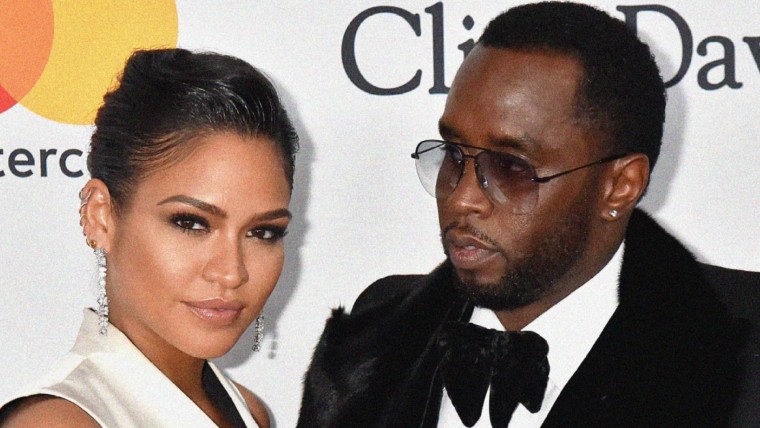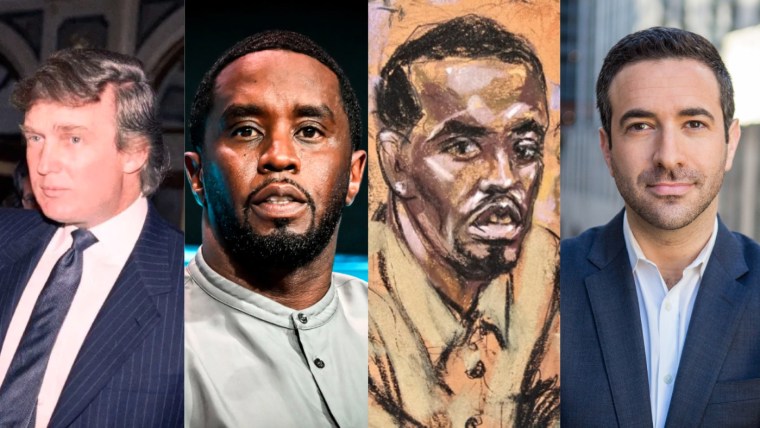This is an adapted excerpt from the May 12 episode of “The Beat with Ari Melber.”
On Monday, federal prosecutors began making their case against Sean “Diddy” Combs, the music mogul, rapper and entrepreneur, who is facing charges of sex trafficking and racketeering. With evidence dating back over a decade, the government delivered a blistering opening statement, painting Combs as an alleged abusive, methodical predator.
The institution of the jury consequently invests the people, or that class of citizens, with the direction of society.
Alexis de Tocqueville
The first day of the trial brought tremendous interest. Combs has been a prominent, powerful leader in culture and business for decades. The case also presents several issues of national importance: Domestic violence against women, a rampant problem that is often underaddressed in court and society; predatory abuse in the music and entertainment industries; and homophobia, an ugly part of some rap culture and a complex problem that may intertwine with some of the testimony explored in the trial.
This is far more than some “tabloid” or “celebrity” case, especially for those accusing Combs, who may view this as a chance to seek justice in court while also advocating for reform across the nation to prevent any alleged crimes like these from recurring. This isn’t just a matter of law; this trial could have a real impact on society and the future of social movements in this country.
In that sense, it follows the very American tradition of some trials becoming cultural and ethical flashpoints. In the 1990s, hundreds of millions were riveted by the O.J. Simpson trial. It’s a phenomenon deeper than just modern celebrity culture or cameras in courtrooms. In the 1800s, Alexis de Tocqueville, a philosopher who chronicled America’s civic culture, reflected on how American equality and democracy were fortified by the then-novel notion of drawing jurors to judge their peers at trial.
“The institution of the jury consequently invests the people, or that class of citizens, with the direction of society,” Tocqueville wrote in his best-known work, “Democracy in America.” That idea lives on in how Americans view trials today.
Just consider the mass action we saw unfold after Donald Trump’s first election, when the feminist backlash looked to courts and accountability at a local level. In 2017, the wider #MeToo movement was catalyzed after The New York Times broke the story of Hollywood titan Harvey Weinstein’s years of predation, followed shortly by journalist Ronan Farrow’s reporting for The New Yorker on that case. Women began sharing viral stories, from harassment to survival, sometimes seeking court action and sometimes just finding safety in numbers.

The #MeToo push was first created years earlier, and when the 2017 storm hit, it started a conversation but also keyed off those Hollywood stories, sometimes focusing disproportionately on prominent and white women. Tarana Burke, the activist who coined the term, advocated for a wider embrace of all victims, including women of color, while noting the most important immediate impact was simply that a national conversation was being had.
That theme still continues to this day. For Combs, his accusers are largely women of color, sometimes sex workers. These are people the music star would have a lot of institutional power over, and groups who have been traditionally marginalized and disbelieved. During opening statements on Monday, prosecutors focused on Combs’ alleged abuse of Cassie Ventura. They played 2016 security footage that showed Combs beating and dragging his then-girlfriend.
For his part, Combs has pleaded not guilty to all charges, and legally he is presumed innocent. If convicted, he could face up to a life sentence.
For Combs, his accusers are largely women of color, sometimes sex workers. These are people the music star would have a lot of institutional power over.
The government’s criminal case comes amid an attempted wider reckoning in civil cases against the rap mogul. Dozens of people have filed suits accusing Combs of sexual misconduct or assault. Those people are split almost equally by gender: 43 women and nearly as many men, 38. (Combs has denied all allegations.)
Of course, legally and factually, men can be victims of any crime, including sexual assault, but stigmas remain — from how prosecutors may view such claims to how they are received in society, in general, and in parts of hip-hop culture. The response to the allegations against Combs has further exposed this problem. Salon noted that many of the online memes about his alleged behavior “perpetuate some insidiously homophobic rhetoric, namely the idea that it is more shameful to be gay than to be an abuser.”
It’s a complex and important case, and several dynamics will be at play as this trial unfolds: The misogyny, the racism and the homophobia will be inextricably intertwined with the stories of the alleged victims, the legal presumption of innocence and the responsibility of the jury.

